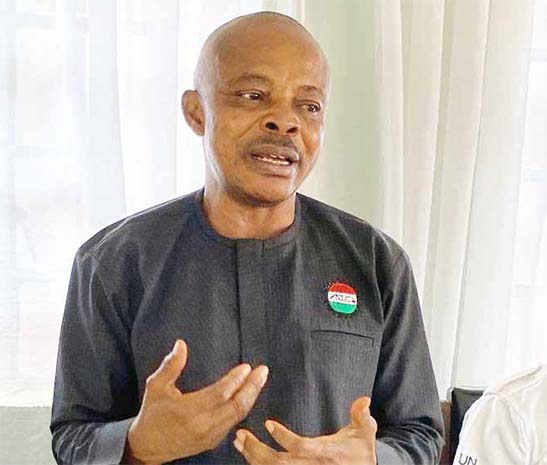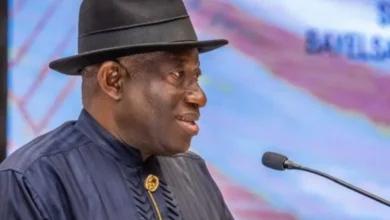Tinubu proposed to increase fuel price if he’ll accept 250k as minimum wage – Ajaero


President of the Nigeria Labour Congress (NLC) Joe Ajaero, has revealed that organised labour accepted N70,000 as new minimum wage because President Bola Tinubu gave a condition of increasing pump price of petrol if the Federal Government would pay proposed N250,000.
Ajaero, who spoke on Wednesday, on Channels Television programme, Politics Today, said labour leaders rejected the president’s condition because it would bring more hardship to Nigerians.
Some Nigerians had condemned organised labour for accepting N70,000 as minimum wage despite earlier shutting down the nation’s economy.
On Thursday, Tinubu approved N70,000 as the new minimum wage for workers.
The approval was announced after Tinubu met with Ajaero and Festus Osifo, President of the Trade Union Congress (TUC), at the presidential villa in Abuja.
The federal government will send a minimum wage bill to the national assembly next week.
Speaking on the development, Ajaero said labour leaders accepted the N70,000 offer because of the other benefits attached, and the three-year review period.
“Accepting N70,000 was the best way to make sure that we save Nigerians from further hardship,” Ajaero said
“At the last meeting, the president brought a proposal that ‘I will give you guys N250,000, if you allow me to equally increase the pump price of petroleum products’ and we said no that we need to go and consult.
“Today, we went there to tell him ‘no’ and that the labour movement can make sacrifices without allowing Nigerians to suffer further on the increase of pump price of petroleum products.”
The NLC president said the current minimum wage regime became invalid on April 18, 2024, and that government will pay the arrears when a new wage regime kicks in.
Over the past few months, federal and state governments, organised labour, and the private sector have been negotiating a new minimum wage.
Initially, organised labour proposed N615,500 and N494,000 as the new national minimum wage, citing inflation and the prevailing economic hardship.
The federal government proposed N62,000, which was rejected.
The labour unions had insisted on N250,000 as living wage.




